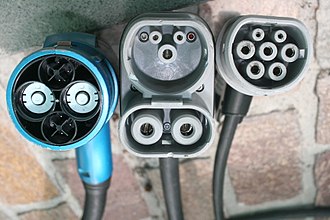So much uncertainty has been thrown at the world this past month. This sudden left turn naturally leads each industry to take a look and try and see what is on the horizon so that we can prepare. Some industries impact the world more than others, and changes there send ripple effects to the rest of society.
The auto industry is one of those giant industries that everyone from politicians to economists keeps an eye on. Prior to this sudden left turn, we were looking like we may soon become an all-electric car reality. But the EV market is especially vulnerable in this upheaval because major investments still need to be made in the technology, the supply chain, and the infrastructure to support it. Forward progress is easy to put on hold when you are forced to make cuts.
Analysts agree that this crisis is very likely to cause carmakers to revisit their manufacturing strategies, which could be especially bad news for electric vehicles.
Dependence on China for Batteries
The EV market’s newness and its dependence on global sourcing for batteries are two hurdles to seeing the EV to fruition, and electric vehicles have already been tough to sell in most mainstream markets.
Last fall, Ford unveiled the Mustang-inspired Mach-E electric crossover, which was well received by the public. Elon Musk’s Cybertruck led to immediate pre-orders, and the EV market has been growing slowly, thanks in large part to enthusiasts, early adopters, the Tesla, the Chevy Volt and the Toyota Prius. But EV’s only account for 2.2 percent of new vehicle sales in 2019.
Oil Price Drops Kill The Economic Argument for EV’s
Falling oil prices, combined with economic fallout, could keep those who are leaning towards purchasing a more expensive EV purchasing internal combustion vehicles for a lot longer. EV leader Tesla alone has seen its stock value cut by more than half in the past month, due to a mix of demand fears and dependence on to Chinese suppliers who are dealing blows due to mandatory shutdowns.
Price May Be The Dealbreaker
The biggest deal killer for EV’s in terms of demand will be the higher than average price tag. When gas is cheap, it undermines the cost of ownership advantage that comes with owning a more expensive vehicle that costs nothing at the pump. This is also true for Hybrids, even with the federal tax credit. At the current national average gas price of $2.25 gallon, it would take 80 years to recover the $8,000 premium from energy savings alone in an EV.
Oil prices could rise once the pandemic is over, but for now, this is reality. Under these conditions, a recession could force lots of consumers to burn through savings and shift any automotive spending to used cars or even hybrids rather than to the more expensive EVs.
Government mandate Fuel efficiency Regulations are a wild card for EV sales. Stricter emissions regulations in the European Union and China might help sales of EVs over there, the fairly modest support for electrics in the US may not be enough to overcome the challenges EV’s face from higher costs and low gas prices.
Some industry experts still believe in the long-term future of electric vehicles. The premium price electric vehicles demand won’t always continue to be expensive, and costs of EVs’ relatively immature technology will likely fall as global production increases.
One thing that may rise up out of this pandemic is an increased demand for autonomous vehicles. If that demand drives production decisions, then the EV is a natural fit for a vehicle with no steering wheel or gas pedal.
So if your dealership was betting large on the future of the Electric vehicle, this pandemic might pump the brakes for a few years. That is not to say the demand will be erased entirely, but you should plan on selling gas-powered cars in your business plans at least in the next five years.
